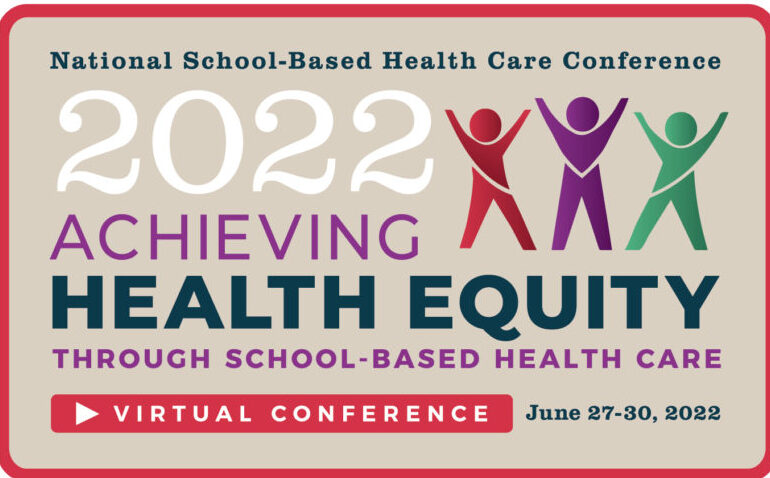This conference was an opportunity to connect with fellow health care professionals, education professionals, and advocates across the nation. More than 2,500 school-based health centers (SBHCs) nationwide deliver integrated, patient-centered care, screening for conditions like obesity and depression, and offering preventive services—all with a special focus on vulnerable children and adolescents. Conference attendees explored the innovative ways SBHCs serve their rural, urban, and suburban schools and communities by promoting wellness and health equity.
In addition to our plenary sessions that featured special invites and keynote speakers, the conference offered over 36 workshops with experts on various topics. There were also SBHC Resources, Tools, and Technical Assistance Sessions to highlight various resources and tools for the field. During one of these sessions, the School-Based Health Alliance summarized its Consulting Services developed during the last couple of years. Check out that recording in Session 4! For additional information on our expert consulting services for your school-based health needs, visit our website at our consulting services.
The Recorded Plenary Sessions
Special Invitees
Senator Ron Wyden of Oregon
Special Invitees
Representative John Sarbanes and U.S. Secretary of Education Miguel Cardona
Keynote
Nat Kendall-Taylor, Chief Executive Officer, FrameWorks Institute
Keynote
Jim Macrae, Associate Administrator, Bureau of Primary Health Care
Panel
School-Based Health Care Workforce Crisis
Keynote
Annie Reed, Executive Director, Thriving Schools, Kaiser Permanente
Special Invitees
Senator Debbie Stabenow, Senator Patty Murray, Senator Shelley Moore Capito, and Representative Rosa DeLauro
Keynote
Pedro Noguera, Distinguished Professor of Education, Dean of the USC Rossier School of Education
The SBHC Resources, Tools, and Technical Assistance Sessions
The Workshop Presentations
+
- A1: Importance of Adaptability Within Community Outreach
- A2: Building Youth Leadership and Community Partnerships Through SBHC Food Pantries
- A3: Videogame to address mental health and prevent the initiation of opioid misuse in adolescents
- A4: What is right with you? Responding to ACEs by fostering youth resilience
- A5: Practical Ways to Incorporate Equity into SBHC Sexual and Reproductive Health Services
- A6: Hoof Beats Sometimes Do Mean Zebras MMXXII
- B1: Implementation of School-Based Telehealth for Increased Access to Primary Care
- B2: Piloting a School-Friendly Health System Framework to Support Children’s Health and Learning
- B3: Suicide Prevention in Primary Care
- B4: Blending an Integrated Model of Primary Care and Behavioral Health with Brick & Mortar and Telehealth Components
- B5: Providing care to rural schools requires specialized training
- B6: Hoof Beats Sometimes Do Mean Zebras MMXXII
- C1: California’s Student Health Index Making the Case for New SBHCs Using Data
- C2: Exploring Unique Opportunities For Meaningful Youth Engagement
- C3: Who’s Walking Through the Door: Working with the Clinician’s Construction of the Student
- C4: Getting Candid: Framing the Conversation Around Youth Substance Use Prevention
- C5: How SBHCs Can Promote Positive Health Outcomes by Addressing Food Insecurity in Their School Communities
- C6: Healthcare for Newly Arrived Immigrants in a SBHC Program
- D1: The Secret Sauce for Starting Rural SBHCs
- D2: Factors Impacting Utilization and Enrollment in a School-Based Telemedicine Program
- D3: Integrating Behavioral Health into Primary Care and School Based Settings: Lessons Learned
- D4: Preventing suicide through universal SBHC screening safety plans and lethal means reduction
- D5: Providing Trauma-Informed Care & Building Resilient Providers in a School-Based Health System
- D6: Screening for Social Risks in School-based Health Centers: Learnings from the Field
- E1: Taking data of the shelf to improve student wellness
- E2: Understanding and addressing the social influences of health & education
- E3: LGBTQ+/BIPOC Youth Connection and Mental Health in the Time of COVID
- E4: Screening for ACEs in SBHCs
- E5: Got Transition? Launching Students From SBHCs Into Adult Health Care
- E6: Sharing the Science
- F1: Relationship Building for Equitable & Sustainable SBHC Services: A Community School Strategy
- F2: Models for School-Based Health Clinics During COVID and Beyond
- F3: Best Practices in SBHC Substance Use Prevention and Intervention
- F4: Practical and Sustainable Steps to Addressing Bias in Contraceptive Care
- F5: Teeth Have Feelings Too: Assessment, preventive measures, treatments and referral resources
- F6: Access for Everyone: A Toolkit for Addressing Behavioral Health Equity and Racial Justice

